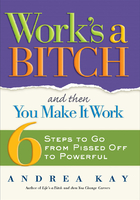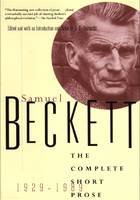Writing for the Theatre
A speech made by Harold Pinter at the National Student Drama Festival in Bristol in 1962.
I'm not a theorist. I'm not an authoritative or reliable commentator on the dramatic scene, the social scene, any scene. I write plays, when I can manage it, and that's all. That's the sum of it. So I'm speaking with some reluctance, knowing that there are at least twenty-four possible aspects of any single statement, depending on where you're standing at the time or on what the weather's like. A categorical statement, I find, will never stay where it is and be finite. It will immediately be subject to modification by the other twenty-three possibilities of it. No statement I make, therefore, should be interpreted as final and definitive. One or two of them may sound final and definitive, they may even be almost final and definitive, but I won't regard them as such tomorrow, and I wouldn't like you to do so today.
I've had two full-length plays produced in London. The first ran a week and the second ran a year. Of course, there are differences between the two plays. In The Birthday Party I employed a certain amount of dashes in the text, between phrases. In The Caretaker I cut out the dashes and used dots instead. So that instead of, say: 'Look, dash, who, dash, I, dash, dash, dash,' the text would read: 'Look, dot, dot, dot, who, dot, dot dot, I, dot, dot, dot, dot.' So it's possible to deduce from this that dots are more popular than dashes and that's why The Caretaker had a longer run than The Birthday Party. The fact that in neither case could you hear the dots and dashes in performance is beside the point. You can't fool the critics for long. They can tell a dot from a dash a mile off, even if they can hear neither.
It took me quite a while to grow used to the fact that critical and public response in the theatre follows a very erratic temperature chart. And the danger for a writer is where he becomes easy prey for the old bugs of apprehension and expectation in this connection. But I think Düsseldorf cleared the air for me. In Düsseldorf about two years ago I took, as is the Continental custom, a bow with a German cast of The Caretaker at the end of the play on the first night. I was at once booed violently by what must have been the finest collection of booers in the world. I thought they were using megaphones, but it was pure mouth. The cast was as dogged as the audience, however, and we took thirty-four curtain calls, all to boos. By the thirty-fourth there were only two people left in the house, still booing. I was strangely warmed by all this, and now, whenever I sense a tremor of the old apprehension or expectation, I remember Düsseldorf, and am cured.
The theatre is a large, energetic, public activity. Writing is, for me, a completely private activity, a poem or a play, no difference. These facts are not easy to reconcile. The professional theatre, whatever the virtues it undoubtedly possesses, is a world of false climaxes, calculated tensions, some hysteria, and a good deal of inefficiency. And the alarms of this world which I suppose I work in become steadily more widespread and intrusive. But basically my position has remained the same. What I write has no obligation to anything other than to itself. My responsibility is not to audiences, critics, producers, directors, actors or to my fellow men in general, but to the play in hand, simply. I warned you about definitive statements but it looks as though I've Just made one.
I have usually begun a play in quite a simple manner; found a couple of characters in a particular context, thrown them together and listened to what they said, keeping my nose to the ground. The context has always been, for me, concrete and particular, and the characters concrete also. I've never started a play from any kind of abstract idea or theory and never envisaged my own characters as messengers of death, doom, heaven or the milky way or, in other words, as allegorical representations of any particular force, whatever that may mean. When a character cannot be comfortably defined or understood in terms of the familiar, the tendency is to perch him on a symbolic shelf, out of harm's way. Once there, he can be talked about but need not be lived with. In this way, it is easy to put up a pretty efficient smoke screen, on the part of the critics or the audience, against recognition, against an active and willing participation.
We don't carry labels on our chests, and even though they are continually fixed to us by others, they convince nobody. The desire for verification on the part of all of us, with regard to our own experience and the experience of others, is understandable but cannot always be satisfied. I suggest there can be no hard distinctions between what is real and what is unreal, nor between what is true and what is false. A thing is not necessarily either true or false; it can be both true and false. A character on the stage who can present no convincing argument or information as to his past experience, his present behaviour or his aspirations, nor give a comprehensive analysis of his motives is as legitimate and as worthy of attention as one who, alarmingly, can do all these things. The more acute the experience the less articulate its expression.
Apart from any other consideration, we are faced with the immense difficulty, if not the impossibility, of verifying the past. I don't mean merely years ago, but yesterday, this morning. What took place, what was the nature of what took place, what happened? If one can speak of the difficulty of knowing what in fact took place yesterday, one can I think treat the present in the same way. What's happening now? We won't know until tomorrow or in six months' time, and we won't know then, we'll have forgotten, or our imagination will have attributed quite false characteristics to today. A moment is sucked away and distorted, often even at the time of its birth. We will all interpret a common experience quite differently, though we prefer to subscribe to the view that there's a shared common ground, a known ground. I think there's a shared common ground all right, but that it's more like a quicksand. Because 'reality' is quite a strong firm word we tend to think, or to hope, that the state to which it refers is equally firm, settled and unequivocal. It doesn't seem to be, and in my opinion, it's no worse or better for that.
A play is not an essay, nor should a playwright under any exhortation damage the consistency of his characters by injecting a remedy or apology for their actions into the last act, simply because we have been brought up to expect, rain or sunshine, the last act 'resolution'. To supply an explicit moral tag to an evolving and compulsive dramatic image seems to be facile, impertinent and dishonest. Where this takes places it is not theatre but a crossword puzzle. The audience holds the paper. The play fills in the blanks. Everyone's happy.
There is a considerable body of people just now who are asking for some kind of clear and sensible engagement to be evidently disclosed in contemporary plays. They want the playwright to be a prophet. There is certainly a good deal of prophecy indulged in by playwrights these days, in their plays and out of them. Warnings, sermons, admonitions, ideological exhortations, moral judgements, defined problems with built-in solutions; all can camp under the banner of prophecy. The attitude behind this sort of thing might be summed up in one phrase: 'I'm telling you!'
It takes all sorts of playwrights to make a world, and as far as I'm concerned 'X' can follow any course he chooses without my acting as his censor. To propagate a phoney war between hypothetical schools of playwrights doesn't seem to me a very productive pastime and it certainly isn't my intention. But I can't but feel that we have a marked tendency to stress, so glibly, our empty preferences. The preference for 'Life' with a capital L, which is held up to be very different to life with a small 1, I mean the life we in fact live. The preference for goodwill, for charity, for benevolence, how facile they've become, these deliverances.
If I were to state any moral precept it might be: Beware of the writer who puts forward his concern for you to embrace, who leaves you in no doubt of his worthiness, his usefulness, his altruism, who declares that his heart is in the right place, and ensures that it can be seen in full view, a pulsating mass where his characters ought to be. What is presented, so much of the time, as a body of active and positive thought is in fact a body lost in a prison of empty definition and cliché.
This kind of writer clearly trusts words absolutely. I have mixed feelings about words myself. Moving among them, sorting them out, watching them appear on the page, from this I derive a considerable pleasure. But at the same time I have another strong feeling about words which amounts to nothing less than nausea. Such a weight of words confronts us day in, day out, words spoken in a context such as this, words written by me and by others, the bulk of it a stale dead terminology; ideas endlessly repeated and permutated become platitudinous, trite, meaningless. Given this nausea, it's very easy to be overcome by it and step back into paralysis. I imagine most writers know something of this kind of paralysis. But if it is possible to confront this nausea, to follow it to its hilt, to move through it and out of it, then it is possible to say that something has occurred, that something has even been achieved.
Language, under these conditions, is a highly ambiguous business. So often, below the word spoken, is the thing known and unspoken. My characters tell me so much and no more, with reference to their experience, their aspirations, their motives, their history. Between my lack of biographical data about them and the ambiguity of what they say lies a territory which is not only worthy of exploration but which it is compulsory to explore. You and I, the characters which grow on a page, most of the time we're inexpressive, giving little away, unreliable, elusive, evasive, obstructive, unwilling. But it's out of these attributes that a language arises. A language, I repeat, where under what is said, another thing is being said.
Given characters who possess a momentum of their own, my job is not to impose upon them, not to subject them to a false articulation, by which I mean forcing a character to speak where he could not speak, making him speak in a way he could not speak, or making him speak of what he could never speak. The relationship between author and characters should be a highly respectful one, both ways. And if it's possible to talk of gaining a kind of freedom from writing, it doesn't come by leading one's characters into fixed and calculated postures, but by allowing them to carry their own can, by giving them a legitimate elbowroom. This can be extremely painful. It's much easier, much less pain, not to let them live.
I'd like to make quite clear at the same time that I don't regard my own characters as uncontrolled, or anarchic. They're not. The function of selection and arrangement is mine. I do all the donkeywork, in fact, and I think I can say I pay meticulous attention to the shape of things, from the shape of a sentence to the overall structure of the play. This shaping, to put it mildly, is of the first importance. But I think a double thing happens. You arrange and you listen, following the clues you leave for yourself, through the characters. And sometimes a balance is found, where image can freely engender image and where at the same time you are able to keep your sights on the place where the characters are silent and in hiding. It is in the silence that they are most evident to me.
There are two silences. One when no word is spoken. The other when perhaps a torrent of language is being employed. This speech is speaking of a language locked beneath it. That is its continual reference. The speech we hear is an indication of that which we don't hear. It is a necessary avoidance, a violent, sly, anguished or mocking smoke screen which keeps the other in its place. When true silence falls we are still left with echo but are nearer nakedness. One way of looking at speech is to say that it is a constant strategem to cover nakedness.
We have heard many times that tired, grimy phrase: 'Failure of communication' … and this phrase has been fixed to my work quite consistently. I believe the contrary. I think that we communicate only too well, in our silence, in what is unsaid, and that what takes place is a continual evasion, desperate rearguard attempts to keep ourselves to ourselves. Communication is too alarming. To enter into someone else's life is too frightening. To disclose to others the poverty within us is too fearsome a possibility.
I am not suggesting that no character in a play can ever say what he in fact means. Not at all. I have found that there invariably does come a moment when this happens, when he says something, perhaps, which he has never said before. And where this happens, what he says is irrevocable, and can never be taken back.
A blank page is both an exciting and a frightening thing. It's what you start from. There follow two further periods in the progress of a play. The rehearsal period and the performance. A dramatist will absorb a great many things of value from an active and intense experience in the theatre, throughout these two periods. But finally he is again left looking at the blank page. In that page is something or nothing. You don't know until you've cornered it. And there's no guarantee that you will know then. But it always remains a chance worth taking.
I've written nine plays, for various mediums, and at the moment I haven't the slightest idea how I've managed to do it. Each play was, for me, 'a different kind of failure'. And that fact, I suppose, sent me on to write the next one.
And if I find writing plays an extremely difficult task, while still understanding it as a kind of celebration, how much more difficult it is to attempt to rationalise the process, and how much more abortive, as I think I've clearly demonstrated to you this morning.
Samuel Beckett says, at the beginning of his novel The Unnamable, 'The fact would seem to be, if in my situation one may speak of facts, not only that I shall have to speak of things of which I cannot speak, but also, which is even more interesting, but also that I, which is if possible even more interesting, that I shall have to, I forget, no matter.'















